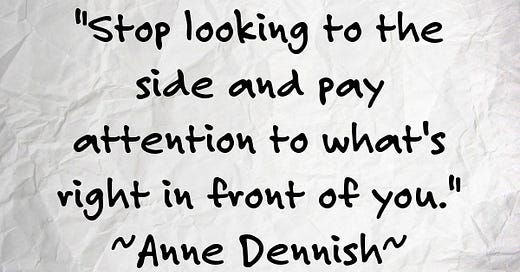The Beautiful Paradox of Truly Loving Another Person
Love is the key that unlocks the “door” to relational flourishing.
The woman I dated before my first wife had a gypsy spirit. She loved to go off on adventures, and didn’t want to be “tied down”. Aside from that part of Karen, I was completely taken by her. In other words: I loved the idea of her, more than the actual person. Yet, isn’t that how we often do it? We love and commit (at least in part) to a person, while hoping, praying, or demanding they change. I find it fascinating how we do that. How about you?
“I just wish he’d _____.” “She’s great, except for ____.” “If only they’d ____.” “They used to be so _____.” Are but a few of our common complaints, hopes, frustrations, and longings. You see, especially when it comes to romantic interests/partners, we regularly create an idealized image of someone in our heads. We paint a picture in our mind’s eye that is based on some combination of that actual person, our personal preferences, peer pressure, our dreams, cultural influence, and beyond.
To make matters worse, this idealization all too often becomes our expectation. And to top it off, when they don’t live up to the imagined person in our heads, we get frustrated and upset. I know I’ve been guilty of this. How about you? This is why it’s been, and remains, a game-changer for me to realize:
Real love embraces and welcomes the totality of the person standing before you. Period.
True love is unconditional, in that it is radically accepting, free of judgment, and doesn’t require the other person to change in any way. And, it’s a beautiful paradox. Love’s a gorgeous absurdity, because it also creates healthy boundaries (especially in the face of harm), while asking and inviting the other to move towards you in ways that are aligned with who and how they are.
In other words, love simultaneously calls us to embrace ALL of another person, precisely as they are, while also holding and caring for our own well-being. Love is complicated and contextual that way. For instance, while I’m twice divorced (neither of my choosing, but both of my making), in retrospect, I can honestly say both partings were the loving thing to do.
Now, while I’ve couched this in terms of romantic relationships, this applies to the rest of life too:
Love’s “key” fits and unlocks flourishing in any relationship—whether it’s romantic, platonic, familial, business, or otherwise.
The more we simultaneously embrace the totality of the person “before” us, and ourselves, the better it all goes. After all, isn’t that what we most deeply desire from others?
Hugs & Love,
Lang (aka “Dr. Love”)






Ahh. Such a good reminder as I’m tucked away in Cuba spending copious amounts of time with my guy.
Honto - truth